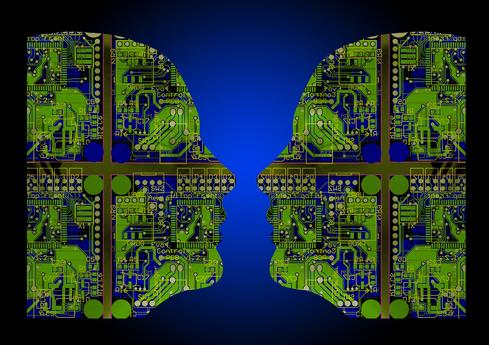Google Scores Huge Win For Artificial Intelligence In Go MatchGoogle Scores Huge Win For Artificial Intelligence In Go Match
Google DeepMind's AlphaGo beat the European Go champion at the complex ancient Chinese game. Google also trounced Microsoft and Facebook in scoring a first in AI.


11 IoT Programming Languages Worth Knowing
11 IoT Programming Languages Worth Knowing (Click image for larger view and slideshow.)
In a major win for artificial intelligence, Google DeepMind's AlphaGo has beat European Go champion Fan Hui in the complex 2,500-year-old Chinese game of Go, touted the official Google blog.
A victory in a Go game against a human champion has long been coveted among AI researchers, because the possible moves that a player can take can reach into the quadrillions and beyond. Or as Google DeepMind's Demis Hassabis points out on the blog: "more than the number of atoms in the universe."
As a result, Go has proven a formidable challenge for artificial intelligence researchers. Microsoft and Facebook, for example, have been working on ways to win in the game over a human champion, but have had no luck to date, according to a BBC news report.
Last October, Google DeepMind held a private, closed-door Go match in its London office between its AlphaGo system and Hui. AlphaGo was able to beat Hui in each of five games played. Hassabis noted that it was the first time a computer program has ever beaten a professional Go player. AlphaGo team members wrote about the experience in a paper published in the journal Nature on Wednesday.
The next step will happen in March when AlphaGo will take on Go world champion Lee Sedol in a five-game challenge in Seoul. Sedol has held the world champion title for the over the past decade. In a video posted on the blog, Hassabis called Lee "the Roger Federer of Go."
Hassabis also explained in the blog post that traditional artificial intelligence efforts tend to use a search tree that factors in all possible positions, which would be difficult to do considering the breadth of possibilities in Go.
As a result, AlphaGo relies on a system that combines an advanced tree search and deep neural networks.
More specifically, Hassabis wrote:
These neural networks take a description of the Go board as an input and process it through 12 different network layers containing millions of neuron-like connections. One neural network, the "policy network," selects the next move to play. The other neural network, the "value network," predicts the winner of the game.
We trained the neural networks on 30 million moves from games played by human experts, until it could predict the human move 57 percent of the time (the previous record before AlphaGo was 44 percent). But our goal is to beat the best human players, not just mimic them. To do this, AlphaGo learned to discover new strategies for itself, by playing thousands of games between its neural networks, and adjusting the connections using a trial-and-error process known as reinforcement learning. Of course, all of this requires a huge amount of computing power, so we made extensive use of Google Cloud Platform.
The final piece of the process was testing the technology out on human players. With the Hui competition a success, and the next challenge set against the world-champion Go player Lee, should AlphaGo prevail again it would be interesting to see if the next contestant might be another AI system, perhaps from Facebook or Microsoft.
Mark Zuckerberg posted something on Facebook's Go efforts, but made no mention of Google's achievement. The social media giant has been working for the past six months on an artificial intelligence Go system that can now make a move in as fast as 0.1 seconds. Facebook AI researcher Yuandong Tian noted in a Cornell University research paper that the bot named darkforest relies on a pattern-matching approach derived from a Deep Convolutional Neural Network (DCNN), which predicts the Go player's next move. There is no indication, however, when Facebook's AI will be ready to compete with a Go champion.
[Read AI, Machine Learning Rising in the Enterprise.]
Microsoft's Go efforts have been underway since 2004, when Microsoft research intern Markus Jost began using artificial intelligence to develop a game called The Path of Go, according to a Microsoft blog on the subject. The research department figured the game was a good way to test some of its important artificial intelligence principles and issues.
The Path of Go is now an Xbox Live Arcade game. Although Microsoft acknowledges its artificial intelligence is strong enough to "challenge the vast majority of newcomers to the game," it knows it does not compare with other higher performance computing solutions that only Go experts could compete with, according to The Path of Go blog.
Google acquired British AI company DeepMind Technologies in 2014 and renamed it Google DeepMind.
Rising stars wanted. Are you an IT professional under age 30 who's making a major contribution to the field? Do you know someone who fits that description? Submit your entry now for information's Pearl Award. Full details and a submission form can be found here.
About the Author
You May Also Like






